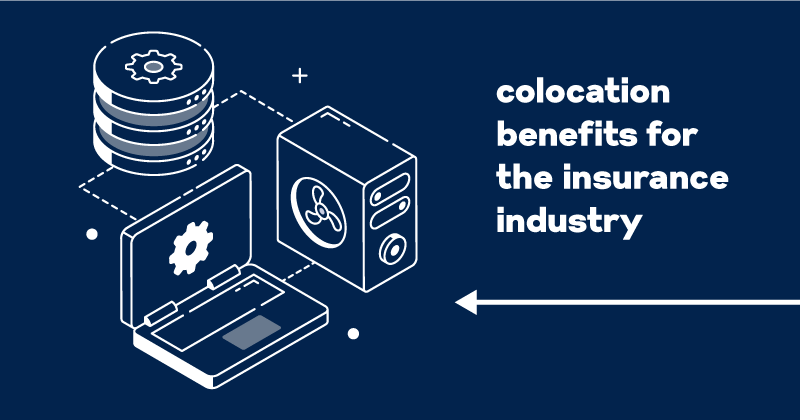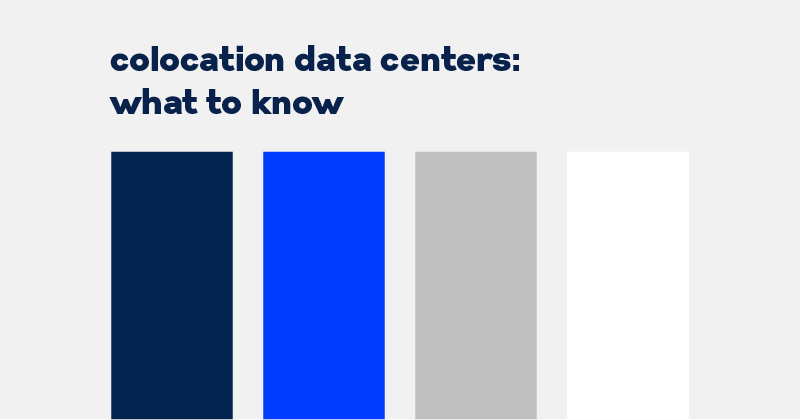Colocation Benefits for the Insurance Industry

IT professionals in the insurance industry, like those in most other industries, face two significant challenges (among the many others): the need to reduce expenses, which is usually tied to budget limitations, and security. For many IT staff, a viable solution to both issues is colocation for insurance companies.
Using Colocation to Reduce Costs
To stay afloat in today’s economy, insurance companies are embracing digital technologies to drive efficiency, improve customer engagement, and create new business opportunities. Of course, it comes with a price tag that’s in addition to the costs of maintaining current IT operations. That makes reducing IT costs whenever possible all the more important.
Colocation for insurance companies can play an important role in this effort.
Maintaining an on-site data center isn’t cheap. The real estate isn’t free, and it’s costly to run the power and environmental controls required. There are also security issues to deal with, as well as connectivity/networking needs. Scalability is limited (if available at all), and it’s hard to do what’s needed to ensure redundancy. There are also significant staffing needs associated with on-site data centers.
With colocation for insurance companies, the third-party data center operator takes on the responsibility for building and maintaining the facility and all the power, environmental controls, networking, security, and other necessary components and services. That reduces capital expenses as well as the operational expenses associated with the human resources and other services required to run an on-site data center.
Colocation also offers insurance companies both scalability and flexibility. They can rent colocation space to address current requirements and scale up or scale back when needed. This elasticity extends beyond space and power to allow them to quickly expand bandwidth to accommodate traffic spikes that can cause performance issues and outages.
Using Colocation to Boost Security
Insurance companies are in the business of risk. The last thing they want to do is expose their IT infrastructure to unnecessary risk. Colocation facilities offer multi-layered physical security features as well as features that help minimize overall risk. This can include:
- Biometric access controls and/or card readers to ensure only those individuals who are granted access may enter the facility
- Available escorted access
- Property perimeter access control features with vehicle-forced intrusion prevention (security fencing)
- Locked cages and cabinets
- 24 x 7 x 365 technical support
- Digital video surveillance with 90-day retention
- Physical location with very low occurrence of natural disasters
- Critical equipment redundancy
Additionally, colocation facilities implement policies and controls to help meet various compliance certifications and standards (often involving security), including SOC 1, SOC 2, SSAE 18, ISO 27001, HIPAA, and PCI DSS.
Additional Colocation Benefits
Colocation facilities often provide access to a more robust power-per-square-foot ratio than is commonly available in on-premises data centers. This allows insurance companies to better leverage innovations in virtualization and high-density computing.
Another benefit of colocation for insurance companies is that the data centers that provide colocation services typically offer multiple high-quality networking options. That gives insurance companies the flexibility to choose the ideal solution for their needs in a carrier-neutral setting.
Colocation Fits a Hybrid IT Strategy
Yet another benefit of colocation for insurance companies is that it fits in well with a hybrid IT strategy. Particularly as these companies pursue digital transformation, it’s important to take advantage of the various IT environments available for optimized workload performance and to meet a variety of other business needs.
For instance, an insurance company may be interested in moving to the cloud so it can start reaping the benefits the cloud offers. However, it needs to keep certain equipment for hosting legacy applications or for security or compliance reasons. Or it may need to keep the equipment because of the investment already made. Colocation can accommodate the existing hardware but provide the opportunity to reduce capital expenses by eliminating some or all of the onsite data centers.
Colocation also enables insurance companies to outsource selected workloads to a colocation facility. This provides them with time to become comfortable in letting go of some of the day-to-day control of their IT assets. They maintain ownership of their equipment but don’t have to invest in the facilities and labor to keep them in-house.
Colocation with the right provider can also facilitate migration to the cloud. One of the issues with a hybrid IT strategy is that it requires advanced networking capabilities to move data between internal and external resources. Colocation providers that also offer cloud services typically have those capabilities in place. Because they enable companies to put their non-cloud infrastructure in the same facility as their cloud systems, these organizations can take advantage of fast, reliable data movement between the two environments.
The Edge and Beyond
Access to a data center’s operator and interconnect networks also makes it easier and more cost-efficient to quickly move data over large geographical areas and between these assets. That’s particularly important for insurance companies as most are dealing with customers and other entities across large geographic areas. These private interconnects and specialized network systems get data to corporate WAN and LAN systems, adding a layer of security in how information is delivered.
Colocation for insurance companies can also play a role in enabling insurance companies to leverage the benefits of edge computing. Edge computing allows for moving the necessary resources closer to end-users, speeding up and improving the digital experience. Edge hardware requires fewer resources than traditional colocation, but the distribution of the edge network must be managed by companies.
Learn More About Colocation
Whether your company is in the insurance industry or another sector, there are numerous reasons to consider colocation. To learn more about the benefits, take advantage of the resources listed below. Or contact US Signal to discuss the colocation services and data centers we offer.



